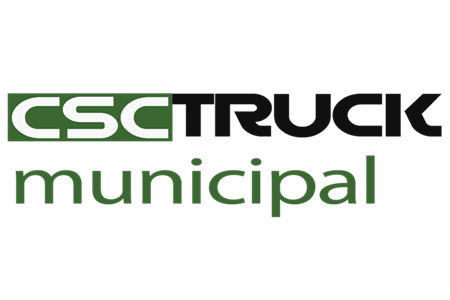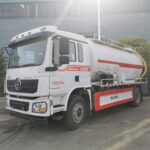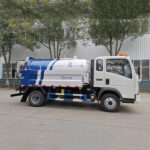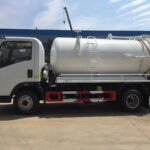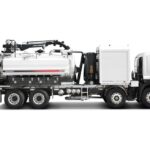Maintaining the underground labyrinth of pipes that form the circulatory system of our cities is an essential but often overlooked task. Sewer systems, stormwater drains, and other conduits are the unsung heroes of urban infrastructure, silently carrying away waste and rainwater to keep our cities clean and functional. However, these vital systems require regular maintenance to prevent blockages, leaks, and other issues that can lead to costly and unpleasant consequences. In this article, we will explore the world of sewer jetting trucks, and advanced solutions that have revolutionized pipe maintenance and contribute significantly to the longevity and efficiency of our underground infrastructure.
The Challenge of Pipe Maintenance
Urban populations are growing rapidly, and with them, the demands on sewer and drainage systems are increasing. Over time, these pipes accumulate debris, grease, tree roots, and other obstructions, leading to reduced flow capacity and, eventually, blockages. Blockages can result in sewage backups, flooding, and environmental pollution, not to mention the costly repairs they entail.
Traditional methods of pipe maintenance often involve digging up the pipes for inspection and cleaning, a labor-intensive and disruptive process. This approach not only causes inconvenience to residents and businesses but also increases the overall cost of maintenance. Moreover, it doesn’t provide a long-term solution to prevent future blockages.
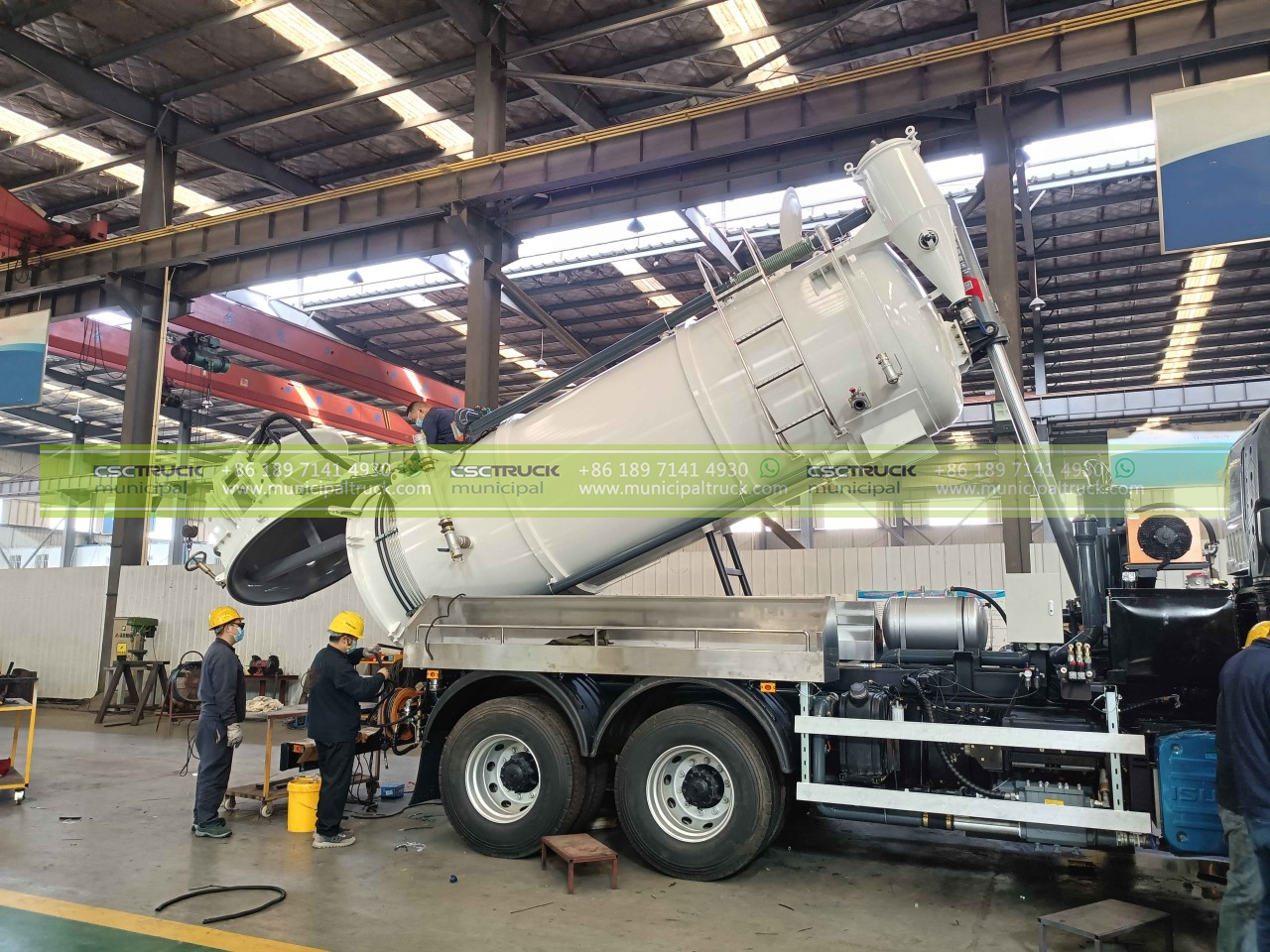
Sewer Jetting Trucks: A Modern Solution
Sewer jetting trucks represent a modern and efficient solution to the challenges of pipe maintenance. These specialized vehicles are equipped with high-pressure water jetting systems that can blast away obstructions, debris, and even tough tree roots from within the pipes. The key advantages of sewer jetting trucks include:
1. Precision Cleaning: Sewer jetting trucks use high-pressure water jets to clean pipes thoroughly. The precision of these jets allows operators to target specific areas, ensuring a more effective cleaning process. This precision reduces the need for repetitive cleanings and helps prevent future blockages.
2. Environmentally Friendly: Unlike traditional cleaning methods that often rely on chemicals, sewer jetting trucks use water as their primary cleaning agent. This approach is environmentally friendly and poses no risk to public health. It also helps prevent the release of harmful substances into our waterways.
3. Cost-Efficiency: Sewer jetting trucks are cost-effective in the long run. While the initial investment in these vehicles and their maintenance may be significant, the reduced need for frequent pipe repairs and replacements offsets these costs. Additionally, the minimal disruption to urban life during maintenance operations is a significant cost-saving factor.
4. Non-Invasive: One of the most significant advantages of sewer jetting trucks is their non-invasive nature. Traditional pipe maintenance methods often require extensive digging and excavation, leading to property damage and prolonged disruptions. Sewer jetting, on the other hand, is minimally disruptive, as it can be performed without major excavations.
5. Preventive Maintenance: Sewer jetting is not just about clearing existing blockages; it’s also a preventive measure. Regular jetting can remove potential blockage sources, such as grease buildup and tree roots before they become major problems. This proactive approach significantly reduces the risk of emergencies and the associated costs.
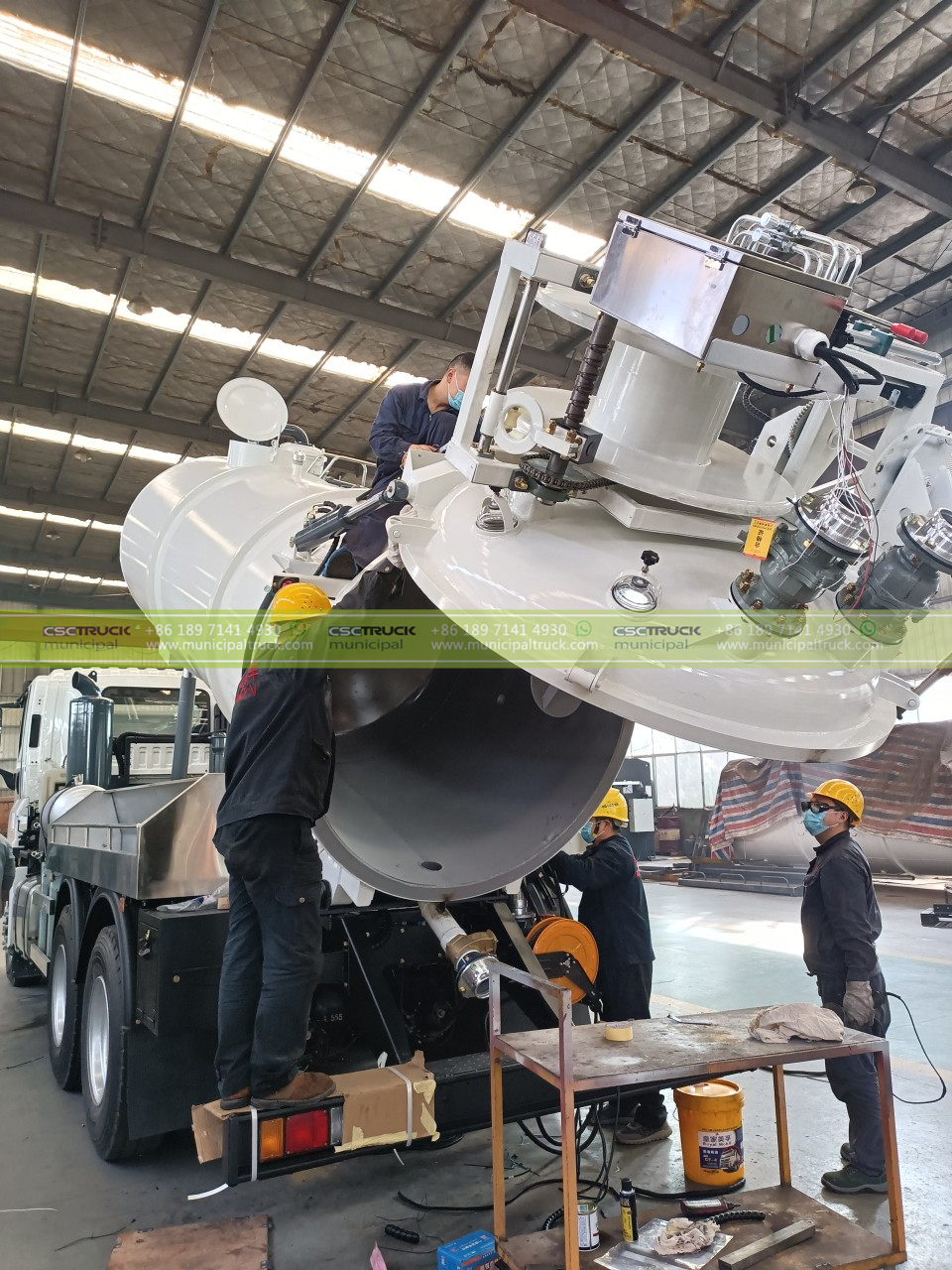
How Sewer Jetting Trucks Work
Sewer jetting trucks rely on a combination of high-pressure water and specialized nozzles to clean and clear pipes. The process typically involves the following steps:
1. Inspection: Before beginning the jetting process, operators often conduct a thorough inspection of the pipes using CCTV cameras. This inspection helps identify the location and nature of blockages, allowing for targeted jetting.
2. High-Pressure Water Jetting: The heart of the sewer jetting truck is its high-pressure water jetting system. This system can generate water pressure exceeding 4,000 psi (pounds per square inch). The high-pressure water is fed through a hose with a specialized nozzle designed to create a powerful and controlled stream.
3. Targeted Cleaning: The operator inserts the jetting nozzle into the pipe through an access point. The high-pressure water is then directed at the blockage or buildup, effectively breaking it apart and flushing it away. The operator can control the pressure and angle of the water jet to ensure thorough cleaning.
4. Removal of Debris: As the water dislodges debris and obstructions, it is carried away through the pipe, leaving it clean and clear. This process can be repeated at multiple points along the sewer or drainage system as needed.
5. Final Inspection: After jetting, a final inspection is often conducted to ensure that the pipes are free from blockages and in good condition. This helps confirm the success of the cleaning operation.
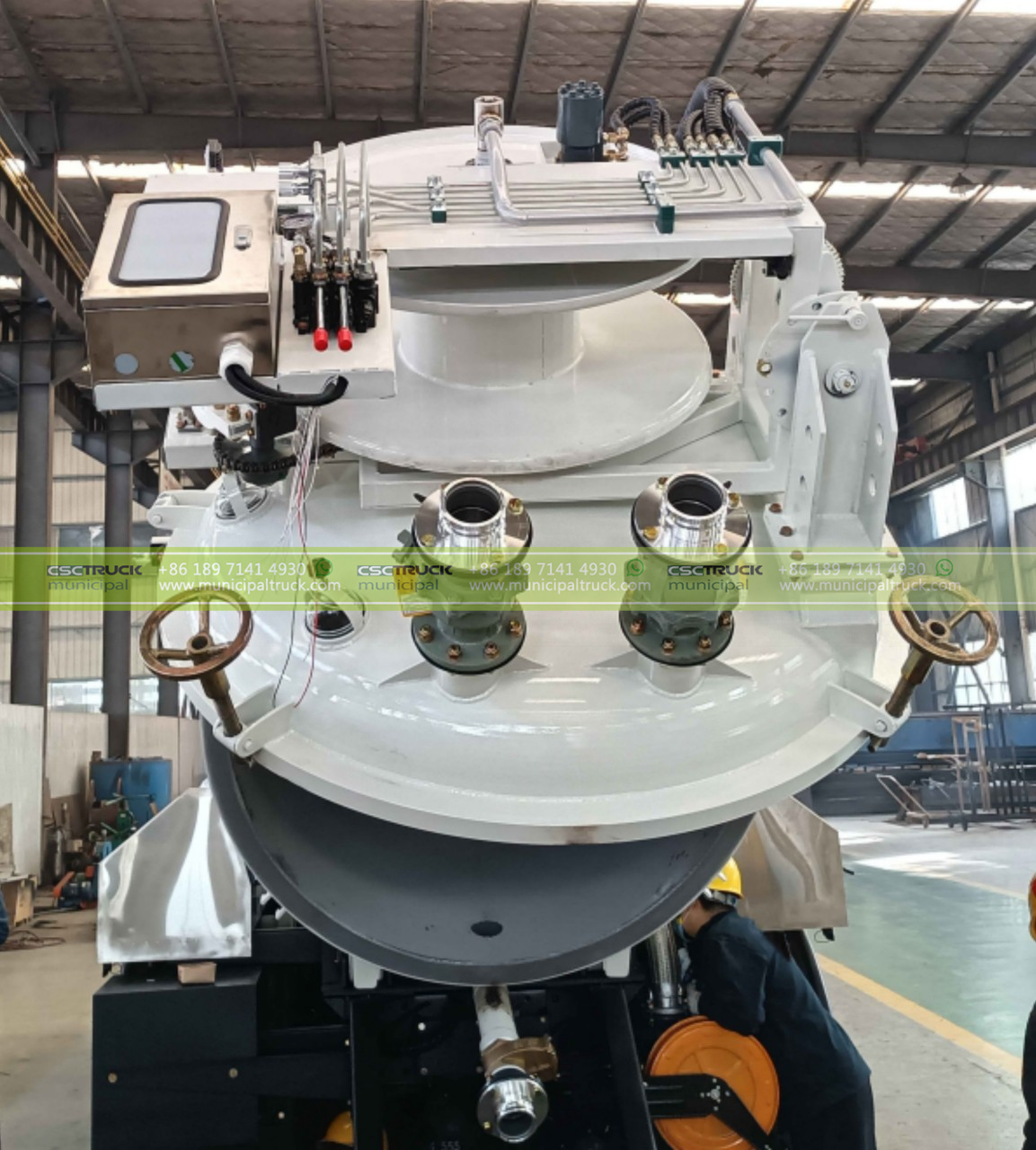
Applications of Sewer Jetting Trucks
Sewer jetting trucks are versatile tools with a wide range of applications. They can be used in various scenarios, including:
1. Municipal Sewer Systems: Municipalities use sewer jetting trucks to maintain their extensive sewer systems, ensuring uninterrupted wastewater flow.
2. Commercial and Industrial Facilities: Large industrial complexes and commercial properties often have complex drainage systems that require regular maintenance. Sewer jetting trucks are invaluable in keeping these systems functioning correctly.
3. Residential Areas: In residential areas, tree roots are a common cause of blockages. Sewer jetting trucks can quickly clear these obstructions, preventing costly backups in homes and neighborhoods.
4. Emergency Response: Sewer jetting trucks are essential in emergency response situations, such as sewer backups or overflows caused by heavy rainfall. They can quickly clear blockages and prevent further damage.
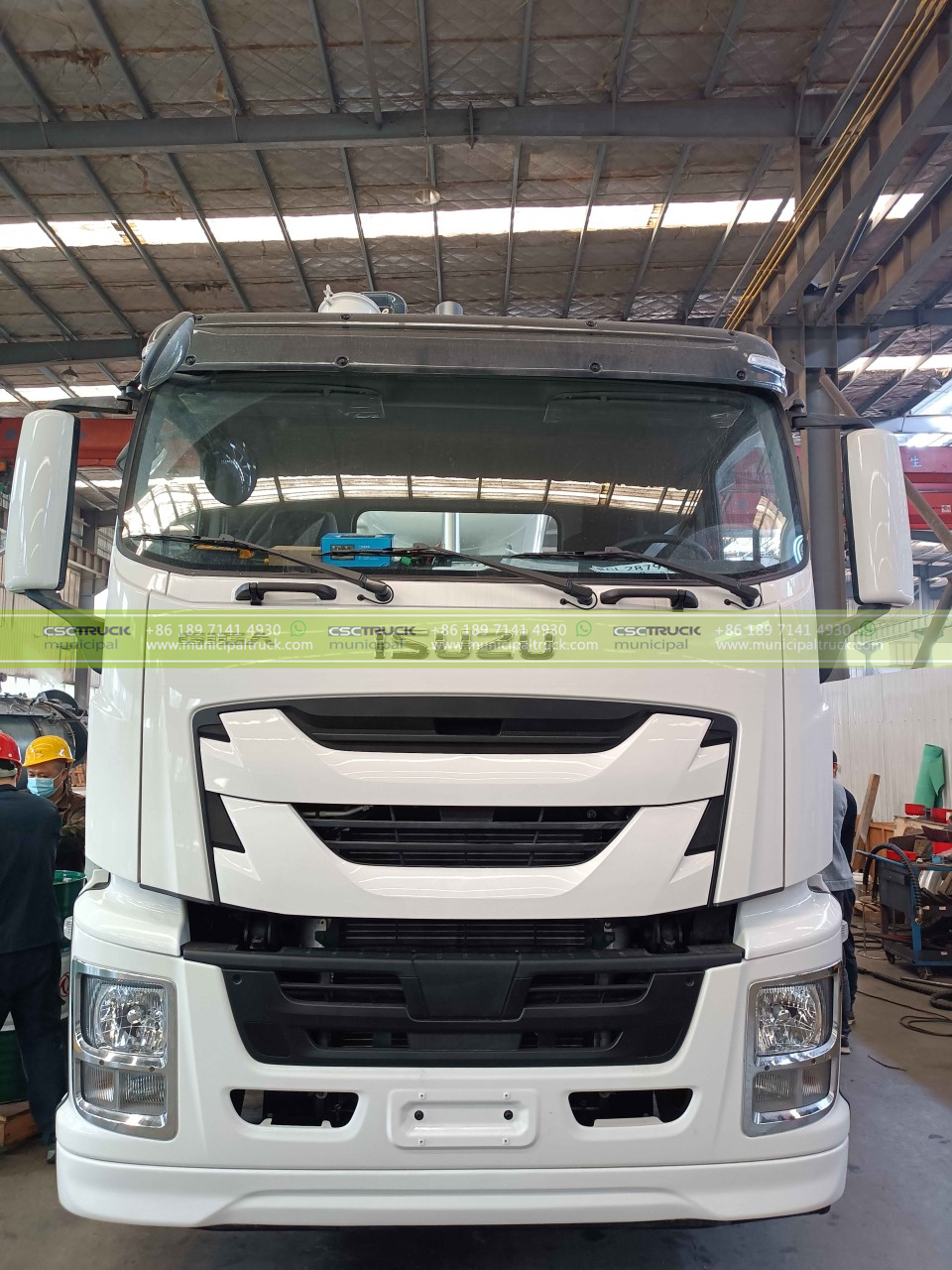
The Future of Pipe Maintenance
As cities continue to grow and aging infrastructure becomes an increasingly pressing issue, sewer jetting trucks will play an even more crucial role in pipe maintenance. Advances in technology are making these vehicles more efficient and environmentally friendly. For example, some sewer jetting trucks now come equipped with advanced filtration systems to purify the water used in the jetting process, reducing water consumption and waste.
Furthermore, the integration of data analytics and remote monitoring capabilities is helping municipalities and utility companies better manage their pipe networks. These technologies allow for predictive maintenance, identifying potential issues before they become critical and optimizing maintenance schedules.
In conclusion, sewer jetting trucks represent an advanced solution for pipe maintenance that addresses the challenges posed by growing urban populations and aging infrastructure. Their precision, cost-efficiency, and non-invasive nature make them an indispensable tool in ensuring the longevity and efficiency of our underground pipe networks. As technology continues to evolve, we can expect these vehicles to play an even more significant role in the future of urban infrastructure maintenance, ensuring the seamless functioning of our cities’ circulatory systems for generations to come.
Contact us for this municipal truck or similar trucks: [email protected] Call us or What's APP us: +86 189 4292 3930
